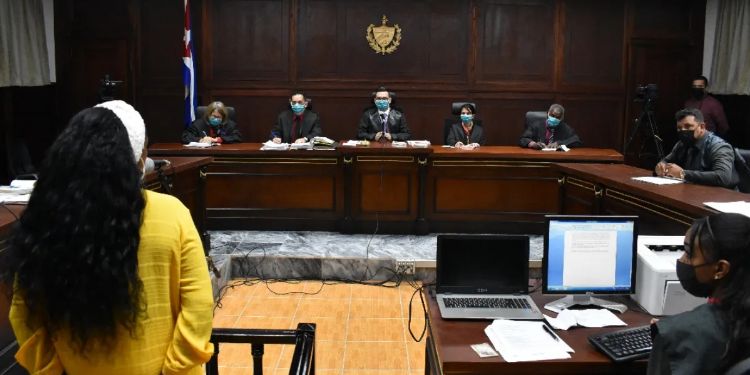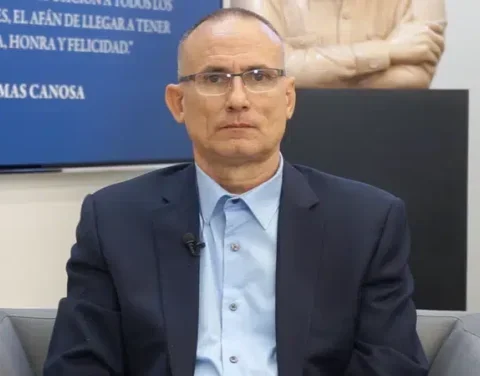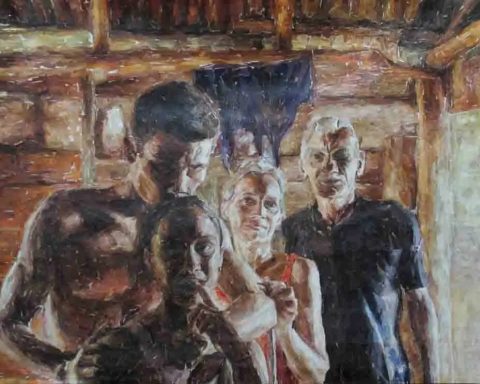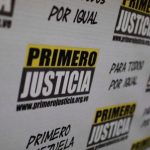LAS TUNAS, Cuba. — Sanctioned for protesting against public policies that make society on the Island increasingly miserable, today, hundreds of Cuban protesters of the July 11, 2021 (11J) remain imprisoned in subhuman conditions, denying them elementary rights —now justly recognized for animals— such as decent treatment and adequate medical services, to the astonishment of the civilized world and the conniving silence, for economic or political interests, of accomplices of the regime communist totalitarian.
Criminalizing their rights to freedom of thought and conscience, the 11J protesters were punished as criminals instead of people motivated by altruistic causes, such as demanding responsible public policies for the socioeconomic life of the nation and not bureaucratic obstacles in the conduct of the country .
Most of those convicted were accused and punished for “sedition”, a crime against the internal security of the State, or for crimes against the administration and jurisdiction, which are transgressions conceptualized as “violence, offense and disobedience against authority, officials public and its agents.
Anyone who, with a minimum of knowledge of Cuban criminal laws, listens to the account of those court sentences could say that 11J Miguel Díaz-Canel and the judicial system went from decriminalization to punishment. I say Díaz-Canel because, in his capacity as ruler, instead of giving political answers to the protesters, he chose to frighten the population through prison punishment. And I am referring to the judicial system because, forgetting its supposed task of attacking human beings as little as possible with criminal sanctions, instead of decriminalizing, it took on the task of sanctioning the Cuban family like never before.
On May 29, 2013 —almost nine years ago— General Raúl Castro, then president of the Council of State, signed the Decree-Law No. 310 (still in force), amending the Criminal Code and the Law of Criminal Procedure, taking into account, it said, “the socioeconomic changes and transformations” that have occurred in the country, criminality, the requirements of judicial practice and “the need to seek greater effectiveness and efficiency in the prevention and confrontation of crime”, in order to contribute to the “more coherent application of the criminal policy outlined by the State”.
By virtue of “the criminal policy outlined by the State”, Decree-Law No. 310 produced modifications in the Penal Code and in the Criminal Procedure Law in order to decriminalize sanctions in crimes in which the maximum limit of the Applicable sanctions did not exceed “three years of deprivation of liberty or fines of up to a thousand quotas or both”, such as the crimes of attack, resistance and contempt, for which not a few protesters were sanctioned with prison sentences, when they could be treated as non-crimes.
In these events, of low consequences and social danger and in which those involved were people of good conduct, prior authorization from the prosecutor, the acting authority is empowered to impose an administrative fine without the need to initiate criminal proceedings and refer the proceedings to court. . Why then so many imprisoned protesters? Why the “indication of greater” severity for so many defendants with no criminal record and good conduct?
Instead of taking the accused to court where he can be punished with a sentence of deprivation of liberty, —as is happening—, the amendments to the Penal Code introduced by Decree-Law No. 310 empower the acting authority to impose a fine between three hundred and three thousand pesos in crimes punishable by up to one year in prison. The fines can be between five hundred and seven thousand pesos depending on the circumstances of the act and the accused person when it comes to crimes punishable by one to three years of imprisonment.
In these cases, if within 10 working days the accused pays the fine and complies with the civil liability requirements in the event of damages or losses, the authorities “will consider the actions and the fact concluded” and, at the criminal effects, “it is not considered a crime”, according to the Single Special Provision of Decree-Law No. 310, which modified section 3 of article 8 of the current Penal Code, a provision of which, to ensure compliance, they are responsible the heads of the Ministry of the Interior, the Attorney General’s Office and the Governing Council of the Supreme Court.
OPINION ARTICLE
The opinions expressed in this article are the sole responsibility of the issuer and do not necessarily represent the opinion of CubaNet.
Receive information from CubaNet on your cell phone through WhatsApp. Send us a message with the word “CUBA” on the phone +1 (786) 316-2072, You can also subscribe to our electronic newsletter by giving click here.

















